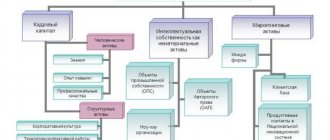Options for using land plots
A specific owner can legally own a plot of land, but any person who has received permission from the owner can use the land. Only the legal owner of the land has the right to dispose at his own discretion. Based on such powers, several types of land use rights are distinguished.
Own
Property rights mean the right of a person to own, use and dispose of a plot of land, which is legally fixed.
The owner acts as a subject of law, and the object in this case is the land itself. The owner of the land receives the right to use everything that is on the surface of his plot and under it, at his own discretion, however, these actions should not be illegal (Article 261 of the Civil Code of the Russian Federation).
Norms Art. 260 of the Civil Code of the Russian Federation states that persons who own land can:
- complete a purchase and sale transaction and transfer your ownership rights to another person;
- donate a plot;
- pledge;
- enter into a lease agreement for the use of the site with another person.
If you own a plot that is intended only for agricultural purposes, then no other activity can be carried out on it. This also applies to other designated territories (clause 2 of Article 260 of the Civil Code of the Russian Federation).
The form of ownership can be of the following types:
- state;
- federal;
- regional;
- municipal;
- private.
Subjects of private property can be both individuals and legal entities.
You can become a full owner on a civil basis or through land privatization. In the first case, land comes into ownership as a result of purchase and sale transactions, donation of heritage, and other things. Privatization involves the transfer of ownership of state or municipal property to private individuals.
Lifetime inheritable ownership
The right to lifelong inheritable ownership refers to land plots owned by the state or municipal organizations, and it is granted only to individuals (Article 265 of the Civil Code of the Russian Federation).
The owner of the land has the legal right to transfer the right of ownership and use of property to another person by inheritance (Article 266 of the Civil Code of the Russian Federation). There are no other ways to dispose of property. After the Land Code of the Russian Federation came into force, the provision of land on the basis of lifelong inheritable ownership ceased, but persons who previously received plots under this right retained it. This change was established by Art. 21 of the Land Code of the Russian Federation, which became invalid on March 1, 2015 on the basis of Law No. 171-FZ.
All persons who inherited land could register ownership or lease rights to it at their own discretion. There is no need to obtain any permits for this; citizens will only need to register their property in accordance with Art. 131 Civil Code of the Russian Federation.
This right ceases to apply if:
- the owner of the land abandoned it in the manner prescribed by Art. 53 Land Code of the Russian Federation;
- the owner is deprived of the land if there are violations of its use (Article 54 of the Land Code of the Russian Federation) and in the presence of the circumstances listed in Art. 45 Land Code of the Russian Federation;
- the owner has registered ownership of the plot.
Permanent unlimited use
Permanent perpetual use refers to real rights to land and is regulated by the Civil Code of the Russian Federation and the Land Code of the Russian Federation. It allows the use of the site in accordance with the purposes intended for it without time restrictions. The authorized body may issue a decision to assign such a right to the following entities:
- government authorities;
- state and municipal organizations;
- state-owned enterprises;
- centers of historical heritage of the presidents of the Russian Federation who no longer exercise their powers.
Individuals are not considered subjects of this type of land use, but if they received it before the RF Land Code came into effect, this right is retained by citizens. In this regard, citizens who previously used land on a permanent, unlimited basis were given the opportunity to purchase their plots and register ownership of them. Each citizen can register only one plot of land as property.
Important! A person using land on a permanent, unlimited basis does not have the right to dispose of it, with the exception of easement and service allotment.
Law No. 137-FZ of October 25, 2001 obligated all legal entities using land under the right of permanent, unlimited use to register the plots as ownership or lease until January 2012. No time frame was set for this for individuals.
Free urgent
Free-term use implies a contractual relationship between two persons, in which one person transfers a plot of land to another for a specific period without charging any payment for it.
In case of gratuitous urgent transfer of land for use, the parties must enter into an agreement in accordance with the norms of the Civil Code of the Russian Federation (clause 1.1, Article 24 of the Land Code of the Russian Federation). The contract must indicate:
- information about the plot and its owner (cadastral number, type of use, data on the certificate of title to the plot);
- time of use (specific period or specific circumstances).
A territory that:
- belongs to state and municipal entities in the manner prescribed by Art. 39.10 Land Code of the Russian Federation;
- belongs to individuals and legal entities on the basis of an agreement.
The territory transferred for use must be used for its intended purpose.
Lease and sublease
Lease of land territory implies its transfer by one person for temporary use to another for a fee under certain conditions (Article 606 of the Civil Code of the Russian Federation).
The owner acts as a lessor.
To settle such relationships, the parties enter into a land lease agreement between themselves. Its subject is the territory, which is transferred for use to the tenant. The parties stipulate the following points in the agreement:
- location of the subject of the contract;
- category and purpose;
- cadastral number and other distinctive characteristics;
- rent price;
- term of the contract.
Important! The subject of the agreement and the amount of rent are considered essential conditions. If they are absent from the agreement, the document has no legal force.
The parties independently agree on the lease term, but if this clause is not in the agreement, then the parties are considered to have signed it for an indefinite period (Article 610 of the Civil Code of the Russian Federation).
The tenant of the land territory has the right to sublease it to a third party during the validity period of the lease agreement without the consent of the owner, unless this is prohibited by the terms of the agreement, but the tenant must notify him of his decision (Clause 6 of Article 22 of the Land Code of the Russian Federation).
If, under a lease agreement, the use of land owned by the state is formalized for a period of more than 5 years, then the tenant has the opportunity to transfer all his rights and obligations under the lease agreement to a third party within the validity period of the agreement (Clause 9 of Article 22 of the Land Code of the Russian Federation).
Lease and sublease of land must be registered if it is issued for a period of more than 1 year.
Easement
Another type of land use is an easement. It refers to the limited right to use an object owned by another person. Easements can be temporary or permanent.
They are also divided into private and public. The owner of a land territory has the right to demand from the owner of another territory (a neighboring plot) to grant him the right to use this neighboring plot, subject to certain restrictions (private easement).
A private easement may be established for the following purposes:
- to pass or pass through someone else's territory;
- to perform work related to electrical wiring, communications or pipelines;
- other needs that require obtaining the right to limited use of neighboring land.
Attention! A private easement is established by concluding an agreement between the parties. If disputes arise, the issue is resolved in court.
A public easement is established by decision of the executive authority on a plot of land owned by the state in order to meet the needs of the state, municipal organizations or the local population (Clause 1, 2 of Article 23 of the Land Code of the Russian Federation). A public easement can be established:
- if it is necessary to ensure passage or travel through the territory;
- for agricultural work (running and grazing animals, collecting hay);
- for hunting and fishing;
- for research;
- to gain access to the coastal strip.
The owner of the land on which an easement has been established is not deprived of the right to dispose of this territory (Clause 4 of Article 23 of the Land Code of the Russian Federation).
There are other publications by experts on our website, from which you can learn:
- What is a state act on the right to use a site?
- What does unjust enrichment mean?
- Where to apply for land and what to do if the administration refuses?
- What is preliminary approval and how does it happen?
- Who is eligible for benefits?
Ways to protect the rights of private owners
To prevent rights from being violated, it is necessary to:
- Check your cadastral documentation accurately - any error in the documents leads to the possibility of violation of the owner’s rights by other persons, for example, neighbors.
- To be a bona fide owner, in this case, this category includes persons who could not know that the person who transferred the land to them did not have title documents.
- If the owner acquired the land in good faith and honestly fulfilled his duties, then the plot can be confiscated from him only in the following 2 cases:
- If the property was received free of charge;
- If the land was taken from the previous owner illegally.
In this case, the owner has the right to receive compensation from the illegal owner in full for the period of his exploitation of the land.
In the case of a bona fide purchaser of land, he also has the right to compensation for the costs incurred to improve the land from the moment of use of it.
VRI classifier
The entire list of types of land use in accordance with the law is contained in the VRI classifier. Its purpose is to determine the list of permitted uses of the territory when conducting a certain type of activity.
Land users must always check whether their type of activity corresponds to that indicated in the classifier for a given site.
The classifier contains names, detailed descriptions and codes of activities permitted for each specific territory. VRI is established by local governments. The classifier contains 12 general types of activities and additional clarifying types.
If users have not yet decided on the direction in which the land will be used, then a generalized VRI is initially established, so that in the future it would be possible to use all specified types. Violation of the classifier rules may result in civil consequences (termination of the agreement between the parties) and administrative fines.
The legislation provides for several types of land use. Some of them were installed during the USSR period and ceased to be used with changes in legislation. Land users must comply with the rules specified in the VRI classifier. It contains a detailed description of the types of activities that can be carried out in a specific territory.
Description of subjects
According to the law, civilians include all citizens of the Russian Federation without exception who have legal capacity and capacity. The legal capacity of citizens begins at the moment of their birth and ends with death.
This opportunity gives citizens:
- the right to have property,
- conclude civil transactions,
- inherit or bequeath objects,
- engage in business activities,
- possess copyright and create a legal entity.
Legal capacity presupposes:
- presence of a certain psychological maturity,
- a person is capable of volitional, reasoned actions,
- fulfilling civic duty and making smart deals.
Citizens of other states or stateless persons will not be able to take possession of the territories:
- located in the border areas of Russia;
- having a special status according to the standards of the Federation.
Legal entities include organizations of any form of ownership, registered in accordance with the requirements and legally possessing land properties.
Reference! A legal entity must also have legal capacity starting from the moment of establishment of the enterprise and ending with liquidation.
Foreign organizations can own facilities in Russia, but with the restrictions prescribed for individuals.
As a result, the problems of all subjects of the Russian Federation, without exception, are resolved, and their constitutional rights are respected.
Features of obtaining the right to use land by court decision
The most common cases of recognition of the right to use land by a court decision should be considered the following cases:
- Refusal to provide a land plot for lease on the basis of the right of pre-emption to enter into an agreement;
- Refusal to provide a plot of land for urgent free use despite the presence of grounds approved by law;
- Failure to provide the opportunity to conclude an easement agreement on a land plot in order to ensure the normal functioning of the plot that is in a worse territorial location.
If one of the listed conditions has been recorded, it is necessary to go to court to resolve the dispute.
Registration of the right of use in the event of a positive decision by the court on the dispute that has arisen will be carried out on the basis of a court decision that has entered into force. This procedure will begin no earlier than the day following the day the judicial act entered into legal force (that is, on the eleventh day from the date of such a decision, if it has not been appealed).
As for the registration of the arisen right, when it is carried out, a copy of the court decision, certified by a notary, must be included in the list of main documents that are provided to obtain a certificate confirming the legality of the arisen right.
In addition, a copy of the court decision with a note about its entry into legal force must be attached to the text of the agreement on the right to use the land, and the text of the agreement itself must contain a link to such an application.
All actions to obtain the right to use land can be carried out only after the court decision has entered into legal force. This means that filing claims for allotment of land to the plaintiff earlier than this period will be unfounded.










